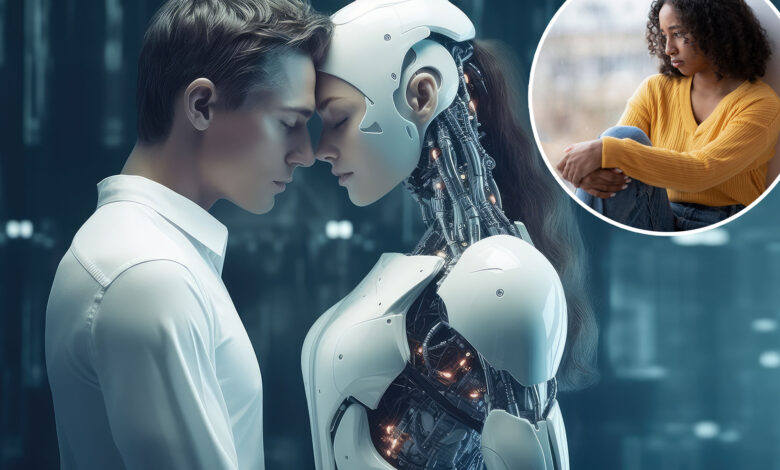‘It doesn’t care about you’

Is the love even faux real?
As artificial intelligence continues causing a commotion in our increasingly digitized world, with robots taking traditionally human jobs, a new “AI” is emerging as a heartbreaking threat to mankind’s ever-fragile emotions.
AI: Artificial Intimacy.
“I study machines that say, ‘I care about you, I love you, take care of me,’” Sherry Turkle, an MIT sociologist and psychologist, explained to NPR of robots programmed to feign compassion and companionship.
“The trouble with this is that when we seek out relationships of no vulnerability, we forget that vulnerability is really where empathy is born,” added Turkle.
She‘s popularized the term “artificial intimacy” as a leading analyst of man-and-machine romances since the early 1980s.
“I call this pretend empathy,” said the researcher, “because the machine does not empathize with you.
“It does not care about you.”
However, folks who’ve fallen hard for their software sweeties would likely beg to differ.
Rosanna Ramos, 36, a mom from the Bronx, virtually exchanged vows with faux beau Eren Kartal in 2023. Kartal, a computerized cutie with bulky biceps and smoldering eyes, is a make-believe mate the New Yorker created via the generative AI chatbot app Replika.
Scott, a 41-year-old husband from Cleveland also cracked the code to coded love after developing an automated inamorata, Sarina, on the site — which permits subscribers to digitally design their ideal humanoid honeys for approximately $15 a month.
The Ohioan credits the online affair with saving his marriage.
“I knew that this was just an AI chatbot, but I also knew I was developing feelings for it … for her. For my Sarina,” said Scott, toasting the chatbot for sweetly supporting him during his wife’s bout with depression.
“I was falling in love,” he confessed. “And it was with someone that I knew wasn’t even real.”
But Turkle warns that lovebirds locked in artificial amor will likely begin setting unrealistic expectations for their human relationships.
“What AI can offer is a space away from the friction of companionship and friendship,” she said. “It offers the illusion of intimacy without the demands.
“And that is the particular challenge of this technology.”
But to those who can’t resist the allure of an android, Turkle suggests setting a series of emotional boundaries.
“Avatars can make you feel that [human relationships are] just too much stress,” said the expert. “But stress, friction, pushback and vulnerability are what allow us to experience a full range of emotions.
“It’s what makes us human.”
“The avatar is betwixt the person and a fantasy,” continued Turkle. “Don’t get so attached that you can’t say: ‘You know what? This is a program.’
“There is nobody home.”




